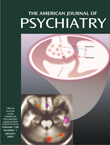The Patient-Provider Relationship: Attachment Theory and Adherence to Treatment in Diabetes
Abstract
OBJECTIVE: Lack of adherence to diabetic self-management regimens is associated with a high risk of diabetes complications. Previous research has shown that the quality of the patient-provider relationship is associated with adherence to diabetes treatment. This study attempts to improve understanding of both patient and provider factors involved in lack of adherence to treatment in diabetic patients by using the conceptual model of attachment theory. METHOD: Instruments that assessed attachment, treatment adherence, depression, diabetes severity, patient-provider communication, and demographic data were administered to 367 patients with type 1 and 2 diabetes in a health maintenance organization primary care setting. Glucose control, medical comorbidity, and adherence to medications and clinic appointments were determined from automated data. Analyses of covariance were used to determine if attachment style and quality of patient-provider communication were associated with adherence to treatment. RESULTS: Patients who exhibited dismissing attachment had significantly worse glucose control than patients with preoccupied or secure attachment. An interaction between attachment and communication quality was significantly associated with glycosylated hemoglobin (Hb A1c) levels. Among the patients with a dismissing attachment style, there was a significant difference in glycosylated hemoglobin levels between those who rated their patient-provider communication as poor (mean=8.50%, SD=1.55%) and those who rated this communication as good (mean=7.49%, SD=1.33%). Among all patients who were taking oral hypoglycemics, adherence to medications and glucose monitoring was significantly worse in patients who exhibited dismissing attachment and rated their patient-provider communication as poor. CONCLUSIONS: Dismissing attachment in the setting of poor patient-provider communication is associated with poorer treatment adherence in patients with diabetes.



